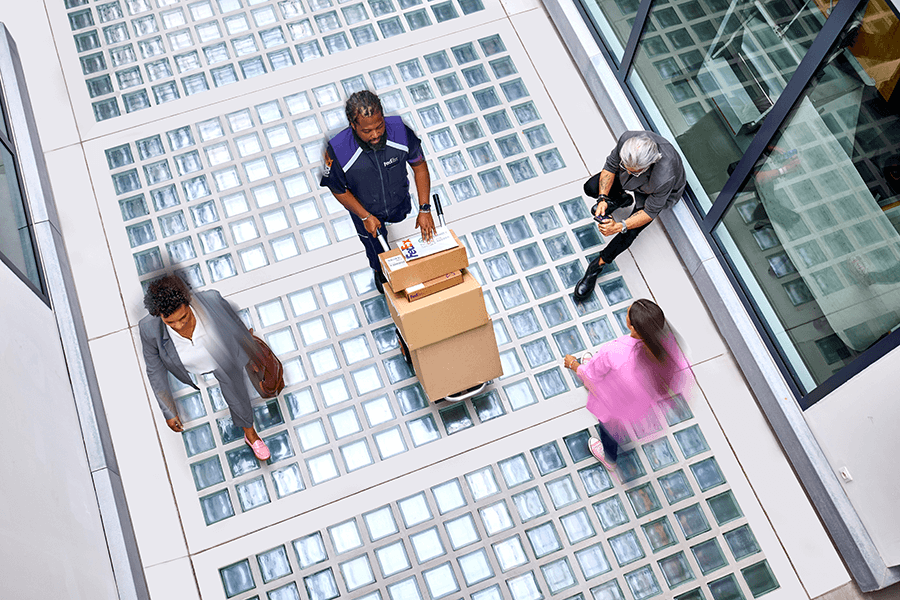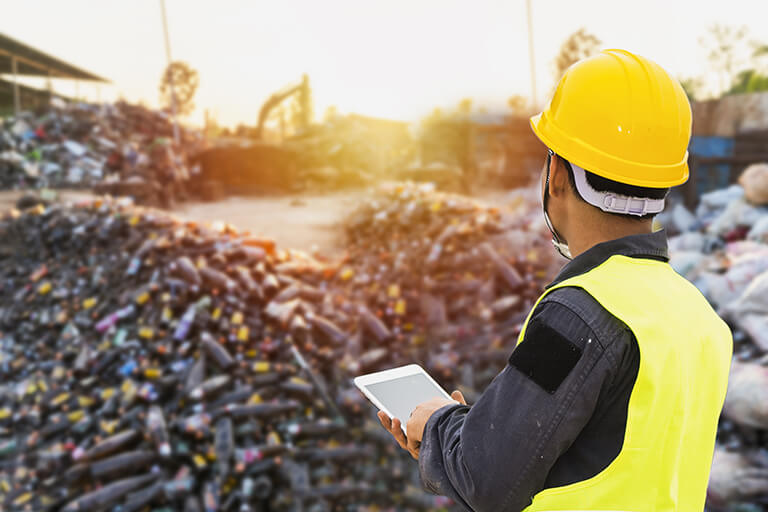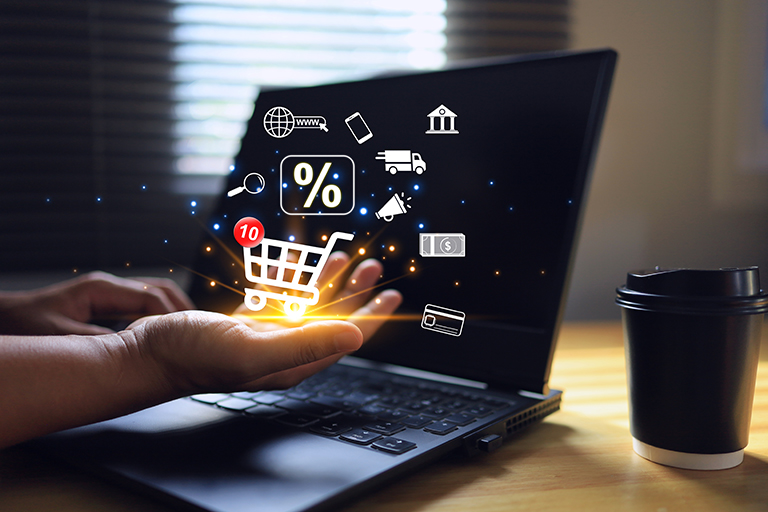How To Grow Your E-Commerce Brand In A Digital Economy
There are so many ways that the digital economy offers e-commerce businesses options for expansion. From e-commerce platforms for cross-border trade to next-generation logistics, discover the opportunities that can benefit your business.
The digital economy has been a major growth driver in creating opportunities for small and medium-sized enterprises (SMEs) in Asia. In recent years, advancing technology and changing
consumer preferences have fueled the rise of cross-border e-commerce. E-tail players continue to enter the market, spanning omnichannel strategies for sales, marketing and customer experience.
And small businesses need to be on top of their game. Today’s online shoppers demand seamless experiences, cost-effective and speedy delivery, and hassle-free returns. In such a mature e-commerce landscape, businesses that can adapt and innovate to meet these demands will capture the most opportunities.
Here is an e-commerce 101 for any business looking to grow and scale their brand or tap new markets:
For SMEs, harnessing a sophisticated supply chain is key to success. Technology and the availability of data have transformed how we operate. And increased integration between e-commerce and logistics can help e-tailers dial up the quality of their customer experience offering.
And small businesses need to be on top of their game. Today’s online shoppers demand seamless experiences, cost-effective and speedy delivery, and hassle-free returns. In such a mature e-commerce landscape, businesses that can adapt and innovate to meet these demands will capture the most opportunities.
Here is an e-commerce 101 for any business looking to grow and scale their brand or tap new markets:
1. Advanced logistics integration can sharpen your competitive edge
For SMEs, harnessing a sophisticated supply chain is key to success. Technology and the availability of data have transformed how we operate. And increased integration between e-commerce and logistics can help e-tailers dial up the quality of their customer experience offering.

At FedEx, we’re sharing the local market insights that help e-tailers build their business strategy. At the same time, we’re making it easier for e-tailers to access our services. No matter which e-commerce platform they operate from, we provide solutions that make order fulfillment, last-mile delivery and returns more efficient.
In today’s business landscape, consumer awareness of sustainability influences purchase decisions. According to research, 74% of Asia Pacific consumers expect brands to take the lead on addressing environmental issues and climate solutions. While speedy delivery is important, sustainability has become a non-negotiable for many consumers.
By operating more sustainably and championing ethical choices, SMEs can attract environmentally conscious consumers and differentiate themselves in a crowded marketplace. This also fosters brand loyalty and, ultimately, drives sales.
2. Brands need to prioritize sustainability
In today’s business landscape, consumer awareness of sustainability influences purchase decisions. According to research, 74% of Asia Pacific consumers expect brands to take the lead on addressing environmental issues and climate solutions. While speedy delivery is important, sustainability has become a non-negotiable for many consumers.
By operating more sustainably and championing ethical choices, SMEs can attract environmentally conscious consumers and differentiate themselves in a crowded marketplace. This also fosters brand loyalty and, ultimately, drives sales.

Sustainability is no longer an optional extra for SMEs interested in expanding e-commerce businesses. Small businesses can make an immediate difference by finding ways to green their supply chain all the way to the end-consumer. With FedEx® Sustainability Insights, businesses can get better visibility of emissions in their supply chains to support reporting and future planning.
Customers can view emissions data for individual tracking numbers, as well as the aggregated historical data of their shipments. This helps them decide how to meet their own customers’ expectations and drive their business and sustainability efforts forward.
For online shoppers, convenience and reliability are crucial. This means offering the best delivery even if customers are not at home. At FedEx, we’ve collaborated with retail outlets and smart locker providers to create a network of 260,000 self-pick-up locations across Asia-Pacific.
Customers also want convenience and assurance at their fingertips. Whether it’s the integration of WhatsApp allowing customers to track packages on their mobile devices, or innovations like Picture Proof of Delivery, online shoppers respond positively to knowing that their packages have been safely delivered to their door.
More and more, Asia’s SMEs are investing in data solutions and digital technology to drive their businesses forward. Advancing your company’s digital transformation can help you streamline operations, improve cost efficiency, and make data-driven decisions.
Customers can view emissions data for individual tracking numbers, as well as the aggregated historical data of their shipments. This helps them decide how to meet their own customers’ expectations and drive their business and sustainability efforts forward.
3. Convenience is key for consumers
For online shoppers, convenience and reliability are crucial. This means offering the best delivery even if customers are not at home. At FedEx, we’ve collaborated with retail outlets and smart locker providers to create a network of 260,000 self-pick-up locations across Asia-Pacific.
Customers also want convenience and assurance at their fingertips. Whether it’s the integration of WhatsApp allowing customers to track packages on their mobile devices, or innovations like Picture Proof of Delivery, online shoppers respond positively to knowing that their packages have been safely delivered to their door.
4. Data-driven decisions will help drive business growth
More and more, Asia’s SMEs are investing in data solutions and digital technology to drive their businesses forward. Advancing your company’s digital transformation can help you streamline operations, improve cost efficiency, and make data-driven decisions.

From AI chatbots to data analytics for the purchase and delivery journey, Asia’s SMEs are going big on technology that enhances the customer experience. At FedEx, we’ve been advocates for owning and leveraging real-time data for decades. Having data at our fingertips allows us to develop smart tools that provide greater visibility on shipments.
This helps tackle issues and enables us to intervene early and deliver a speedy resolution. By combining big data with machine learning, we can create enhanced tracking with estimated delivery times and shipment updates to our customers.
We use predictive algorithms to prepare customs clearance information, so that shipments can be delivered as soon as they arrive in their destination country. With all this and more, we make sure we’re embracing the most advanced technologies our industry has to offer. That way, the small businesses we work with can explore new possibilities and increase operational efficiency.
For the latest on our e-commerce solutions, and tips to grow your online presence, head here.
This helps tackle issues and enables us to intervene early and deliver a speedy resolution. By combining big data with machine learning, we can create enhanced tracking with estimated delivery times and shipment updates to our customers.
We use predictive algorithms to prepare customs clearance information, so that shipments can be delivered as soon as they arrive in their destination country. With all this and more, we make sure we’re embracing the most advanced technologies our industry has to offer. That way, the small businesses we work with can explore new possibilities and increase operational efficiency.
For the latest on our e-commerce solutions, and tips to grow your online presence, head here.
***




















 The Latest
The Latest